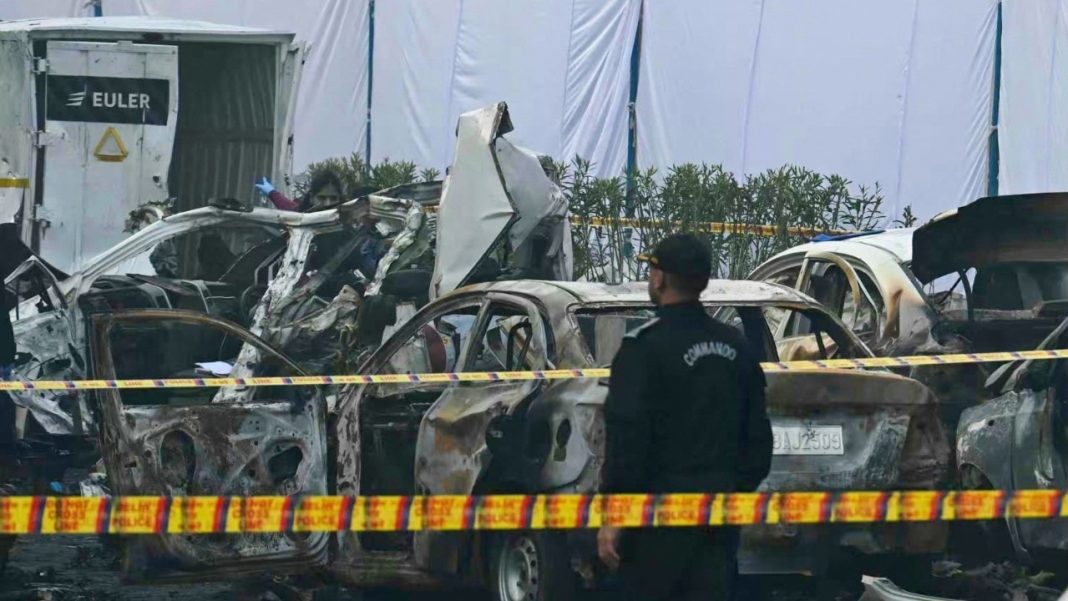The quiet professional corridors of Haryana were recently rattled by a development that has sent ripples of concern across the nation. A woman doctor, whose identity remains protected during ongoing investigations, has found herself under intense scrutiny, questioned by central agencies in connection with an alleged ‘white-collar’ terror module. This unprecedented turn of events underscores a disturbing shift in the landscape of national security, where professional expertise and societal standing are potentially being exploited for sinister ends, challenging traditional perceptions of terrorism.
The NIA Interrogation: Unraveling the Links
The National Investigation Agency (NIA), India’s premier counter-terror force, has been meticulously probing an international terror network, which it suspects involves individuals from seemingly innocuous backgrounds. The doctor, reportedly a general practitioner with a clinic in Haryana, was called in for questioning following intelligence inputs suggesting her involvement. While details remain sparse to protect the integrity of the ongoing investigation, sources indicate the NIA is looking into various aspects, including alleged financial transactions, communication trails, and potential logistical support provided to operatives of a banned outfit.
Investigators are particularly interested in how individuals like the doctor, who operate within trusted societal frameworks, might be drawn into such modules. The ‘white-collar’ aspect of this particular module suggests a sophisticated operation that leverages professional knowledge, resources, and social networks rather than brute force. For instance, a medical professional could potentially provide discreet medical aid, secure accommodations, facilitate travel under plausible pretexts, or even manage finances without raising immediate red flags. The questioning aims to ascertain the extent of her involvement, whether it was voluntary or coerced, and the precise nature of her alleged role within this intricate web.
Beyond the Clinic: The Insidious Nature of ‘White-Collar’ Terror
The term ‘white-collar’ terrorism refers to the involvement of educated professionals, often from middle or upper-class backgrounds, who use their skills and positions to aid terror activities. This form of terrorism is distinct from conventional methods, relying less on direct combat and more on clandestine support mechanisms that are harder to detect and dismantle. These individuals might include doctors, engineers, IT professionals, academics, or even financial consultants, who lend their expertise to funding, propaganda, recruitment, data analysis, cyber operations, or logistical planning for terror outfits. The professional facade provides a layer of legitimacy, making their actions difficult to trace within the legal and financial systems.
This evolving threat paradigm is particularly alarming for security agencies. “The traditional image of a terrorist operative is changing rapidly,” stated a senior security analyst, who requested anonymity due to the sensitivity of the matter. “We are seeing a concerted effort by terror organisations to recruit from educated classes, leveraging their professional skills to build resilient, self-sustaining networks. It’s a silent threat that operates within our societies, making it incredibly challenging to counter without advanced intelligence and community vigilance.” Such modules often aim to radicalize others through online platforms, disseminate extremist ideologies disguised as legitimate discourse, or exploit legal loopholes to move funds and resources internationally.
Societal Reverberations and the Call for Vigilance
The interrogation of a medical professional in connection with a terror module is bound to send shockwaves through the medical fraternity and the broader community in Haryana. It raises uncomfortable questions about trust, vulnerability to radicalisation, and the insidious ways extremist ideologies can penetrate even the most respected professions. For a society that places immense faith in its doctors, such allegations can erode confidence and foster suspicion.
This incident serves as a stark reminder of the multi-faceted nature of modern terrorism and the constant need for vigilance, not just at the borders but within our own communities. It underscores the importance of robust intelligence gathering, inter-agency cooperation, and public awareness campaigns to identify and counter such sophisticated threats. As the NIA continues its thorough investigation, the nation watches closely, hoping for clarity and justice, while grappling with the complex implications of ‘white-collar’ terror operating in its midst. The ongoing probe will undoubtedly shed more light on the motivations, networks, and operational methodologies of this clandestine module, offering crucial lessons for national security strategies.




